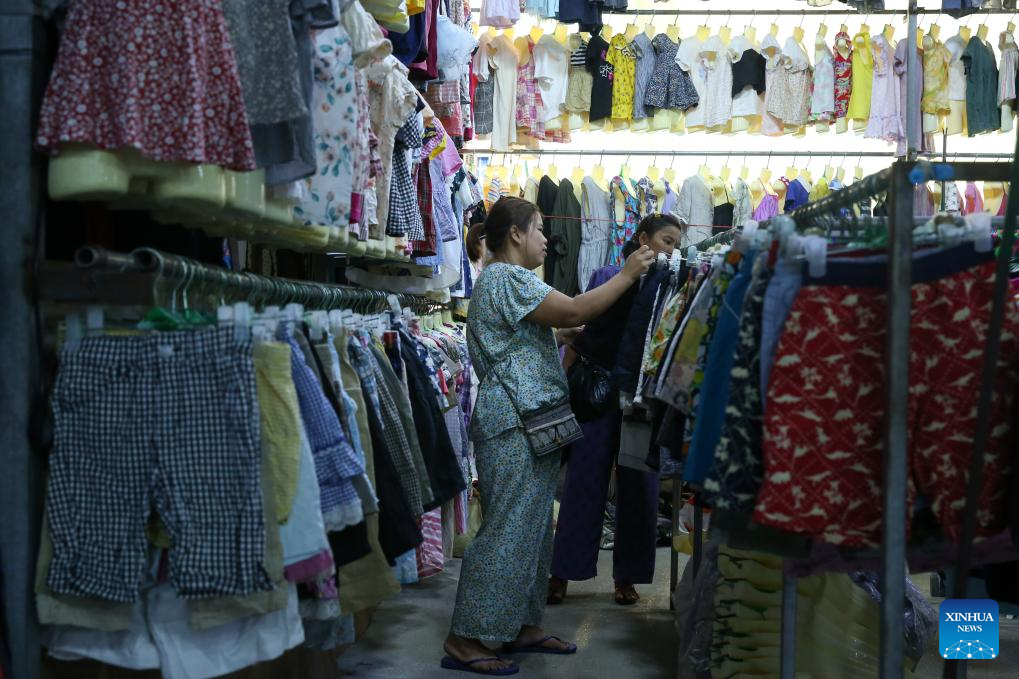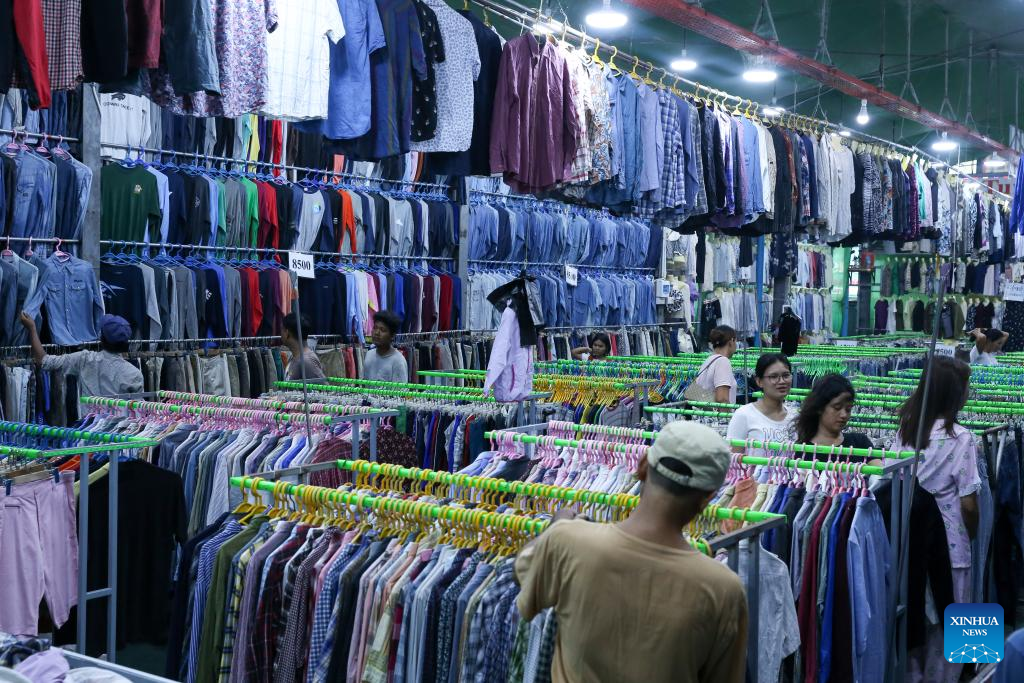
People visit a second-hand clothing market in Yangon, Myanmar, Oct. 8, 2024. In the commercial hub Yangon of Myanmar, the bustling Kyimyindaing second-hand clothing market offers a lifeline for those seeking affordable fashion amid rising costs.(Xinhua/Myo Kyaw Soe)
YANGON, Oct. 9 (Xinhua) -- In the commercial hub Yangon of Myanmar, the bustling Kyimyindaing second-hand clothing market offers a lifeline for those seeking affordable fashion amid rising costs.
The market, commonly known as the Kyimyindaing night market, features a diverse selection of second-hand garments, attracting locals who are looking for quality clothing that fits well without the hefty price tag.
The appeal of foreign-made products, known for their superior fit and durability, draws a loyal crowd who return time and again for affordable fashion finds, according to shop owners.
As the cost of new branded items in the city often exceeds the average income, second-hand shopping provides a practical solution for those balancing style and budget. U Win Naing, a 62-year-old regular visitor, is one such shopper.
"I can't afford new branded items, so I come here to buy jeans and bags. Since these products are used, they are cheap. As they are foreign-made, they fit well and are of good quality," he said on Tuesday.
Moe Win, 35, who has been selling second-hand clothing for about six years, shared insight into the market's supply chain. "The clothes in my shop come from Japan, Thailand, and European countries," he said, gesturing towards rows of colorful garments.
"Most of my customers are women. We have a larger variety of women's clothing compared to men's," he added.
Ma Ngu Wah, 28, who has been running her shop with about 20 employees for several years, has a deep-rooted connection to the business. "My parents also sold second-hand clothing. Now, my siblings and I run our own second-hand shops," she said proudly.
"In my shop, clothing prices start from 500 kyats (about 0.23 U.S. dollars) per item, including trousers, shirts, and office suits," she added.
Having grown up in the industry, Ma Ngu Wah has witnessed its transformation. "I've seen a lot of changes over the years. Prices used to be much lower, but they have now increased significantly," she noted.
Regarding the success of her shop, she said, "Now, we even have customers who buy from us to resell the items." She also mentioned that they also sell second-hand clothing online.
Among her customers is Ma Nge, 48, who has recently ventured into the second-hand clothing business. "I buy trousers and shirts for both men and women to resell at a factory," Ma Nge explained.
"I started this business just a month ago because I'm interested in it, and so far, it's going well," she said. "Second-hand clothing is affordable for people with low incomes," she added.
Shoppers also said that with the money spent on one new item of clothing, they can buy two to three pieces of second-hand clothing at the market, which houses dozens of second-hand clothing shops.
Another shopper, Ko Aung, 32, shared his experience. "I bought a second-hand shoe a few months ago. The new version of this brand is too expensive for me. I also buy electronic devices and vintage clothing to save money," he explained.
"Commodity prices are rising. Buying second-hand items helps me save money," he added. ■

People visit a second-hand clothing market in Yangon, Myanmar, Oct. 8, 2024. In the commercial hub Yangon of Myanmar, the bustling Kyimyindaing second-hand clothing market offers a lifeline for those seeking affordable fashion amid rising costs.(Xinhua/Myo Kyaw Soe)



